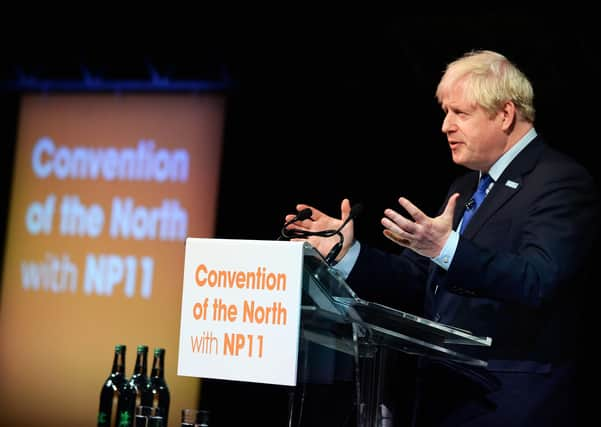Roger Marsh OBE: Why the North has to be central to the UK’s recovery plan


We heard from the Prime Minister about his commitment to the Northern Powerhouse and from it came the Manifesto for the North, a vision for our region that would see the North playing a pivotal role in the future of our country.
We planned to meet again this autumn. Sadly, Covid-19 means this is not possible, but the pandemic and its fall-out has strengthened our resolve and commitment to create positive change. Together, the Convention of the North and NP11 group of Northern local enterprise partnerships, of which I am chair, are calling on the Government to make good on its promises and back fully the North to unleash its potential in the recovery.
Advertisement
Hide AdAdvertisement
Hide AdThe impact of Covid-19 on the North has been severe. The North has had a higher incidence of cases per 100,000 people, had the vast majority of local lockdowns imposed and had over two million people on furlough.
In West Yorkshire, modelling suggests that under a worst-case scenario, the pandemic could wipe out over two decades’ economic growth. Without real, concrete and timely action, we risk 1980s’ levels of unemployment and permanent economic scarring – as leaders, we are resolute that we cannot allow this to happen. We are past the time for words about levelling up – we need action, with the scale of investment, power and resources to get on with the job.
With a pre-Covid economy worth in excess of £350bn and a population of 15.5 million, the North is well-placed to take a leading role in the national economic recovery and lay the foundations of the next industrial revolution, with our region playing a central role.
In West Yorkshire, we have set out a robust Economic Recovery Plan that outlines four key propositions in health innovation, digital, entrepreneurship and innovation, and our goal of becoming a net zero carbon economy by 2038. Backed with a requested £750m investment from government, these would have the potential to make a major contribution to the national recovery.
Advertisement
Hide AdAdvertisement
Hide AdWe are the decision-making centre for national health policy, with the headquarters for four out of five NHS national offices, and around £130bn in healthcare commissioning.
West Yorkshire is home to major public and private-sector healthcare data platforms, with a significant concentration of medical device companies, and world-leading life sciences clusters.
As the possibilities of digital transform the way we live and work, trends massively accelerated by the pandemic, West Yorkshire looks to capitalise on its pre-Covid position as the fastest growing digital sector in the country, with employment growth of 48 per cent between 2015 and 2018.
It is an unfortunate fact that no matter what support is put in place, job losses are inevitable. As Chancellor Rishi Sunak noted in his Winter Economy Plan, the seismic shift in our economy means some jobs are no longer tenable, but over time new industries will grow to replace them.
Advertisement
Hide AdAdvertisement
Hide AdThis is why a central part of our recovery plan is to super-charge innovation and entrepreneurship, backed up with training to make sure people have the right skills for the labour market of tomorrow.
A recent report from the Scale Up Institute revealed our region had the highest scale-up rate in the North, outperforming Manchester by 12 per cent. This is because scaling up requires the right talent, support and ecosystem and we’ve worked hard to achieve this. Our seven universities have a combined 90,000-plus students and produce 30,000 graduates a year.
The upcoming Spending Review and devolution white paper are an opportunity for the Government to make good on its commitments to our region and embed levelling up by putting the North at the centre of its plan for the recovery.